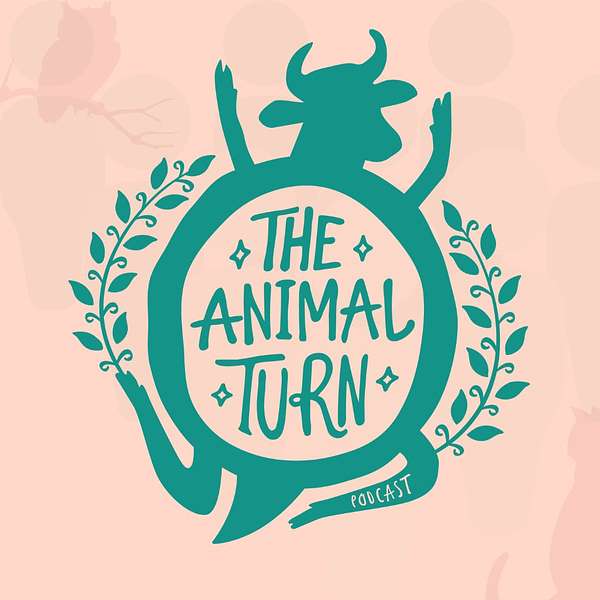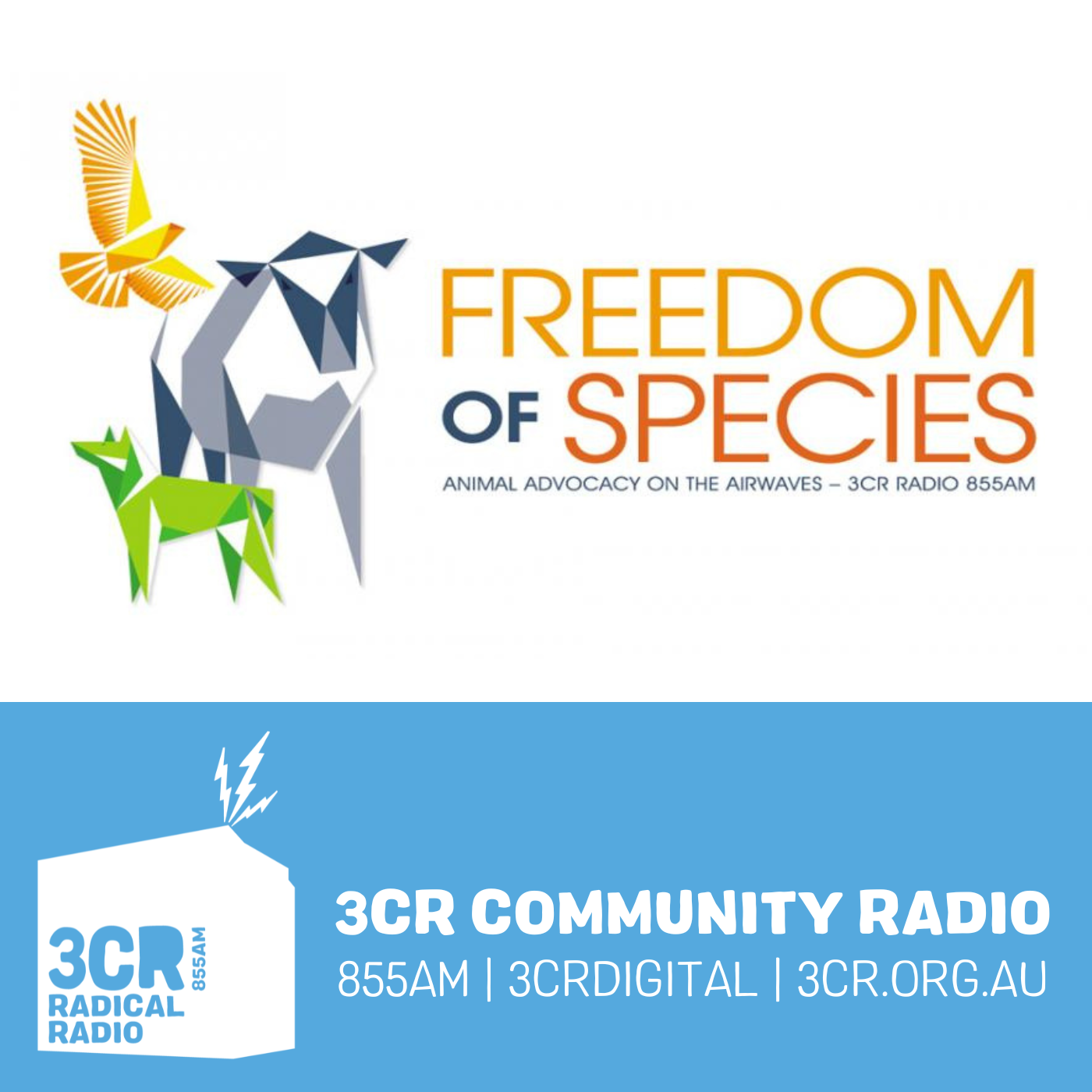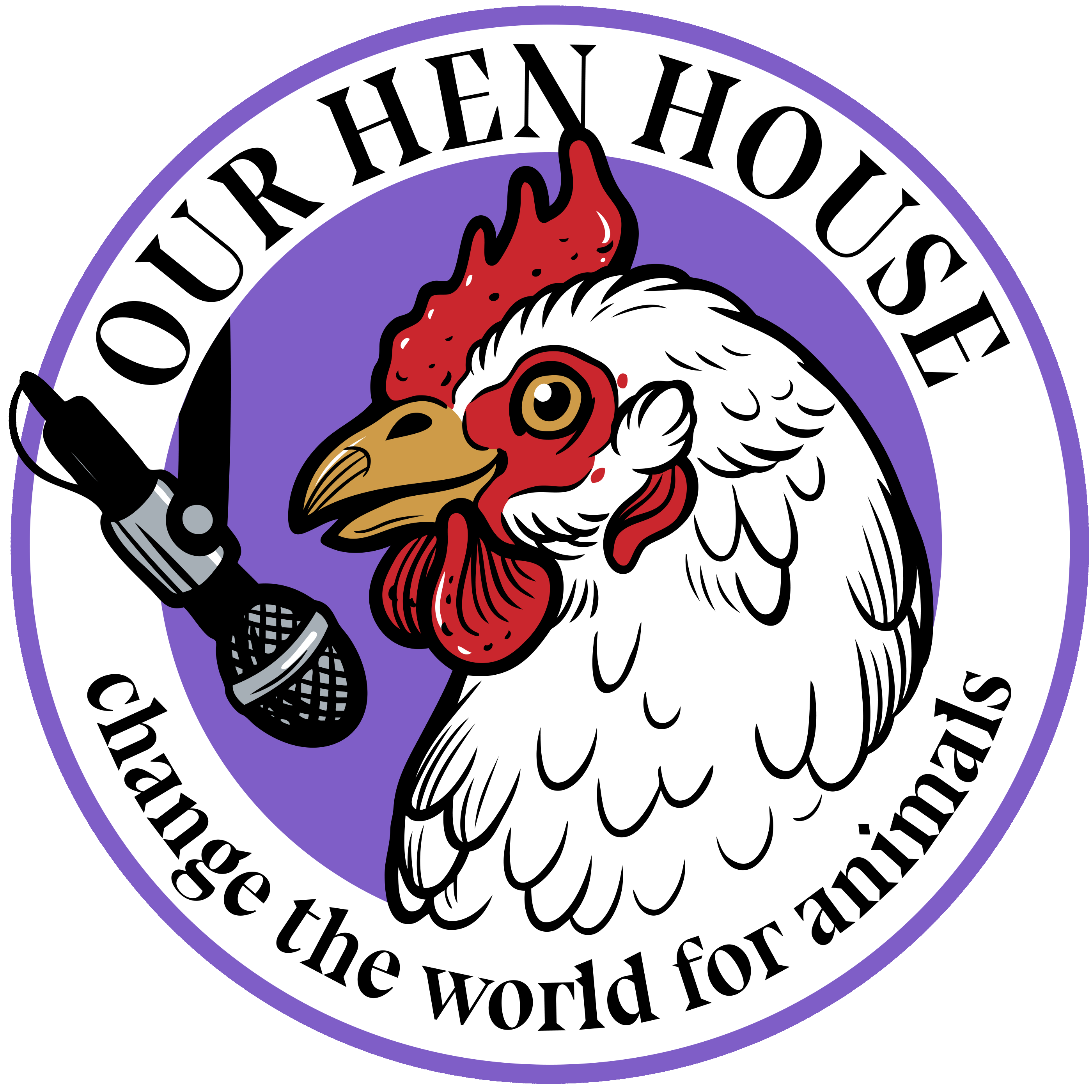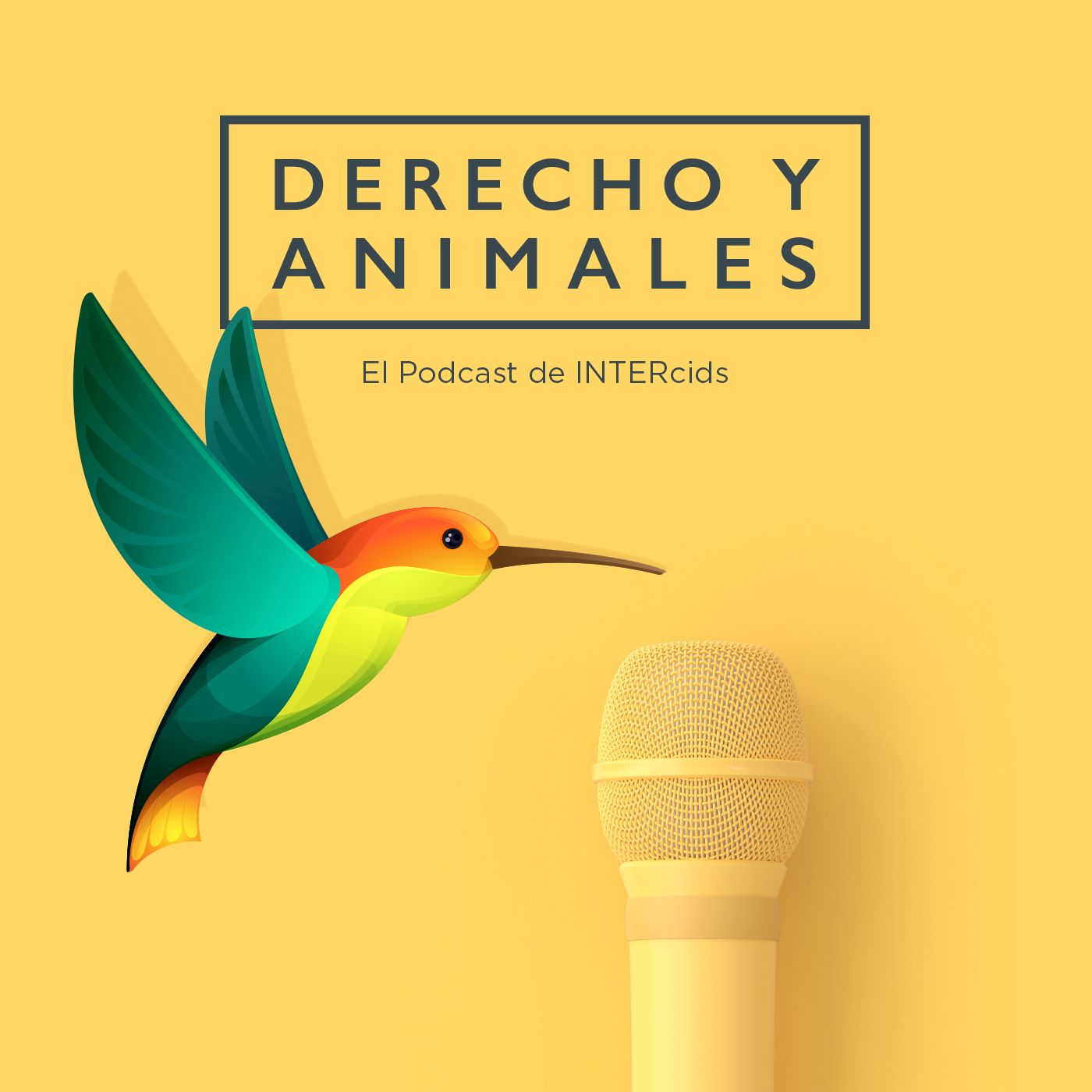
The Animal Turn
Animals are increasingly at the forefront of research questions – Not as shadows to human stories, or as beings we want to understand biologically, or for purely our benefit – but as beings who have histories, stories, and geographies of their own. Each season is set around themes with each episode unpacking a particular animal turn concept and its significance therein. Join Claudia Hirtenfelder as she delves into some of the most important ideas emerging out of this recent turn in scholarship, thinking, and being.
The Animal Turn
S6E10: Grad Review with Virginia Thomas and Darren Chang
In this ‘Grad Review’ Claudia talks to Virginia Thomas and Darren Chang, two early career researchers interested in animals and politics. Together they unpack synergies, tensions, and omissions that emerged in the 6th Season of The Animal Turn podcast. They discuss the multiple scales at which politics is practiced and can be considered, the crisis of imagination that potentially exists among the animal advocacy movement as well as some of the conceptual development being done by scholars that can create space for more just, multispecies futures.
Date Recorded: 15 December 2023.
Darren Chang is a PhD candidate in the Department of Sociology and Criminology, and a member of the Sydney Environment Institute, at the University of Sydney. His research interests broadly include interspecies relations under colonialism and global capitalism, practices of solidarity, kinship, and mutual aid across species in challenging oppressive powers, social movement theories, and multispecies justice.Through political (and politicised) ethnography at animal sanctuaries, Darren's PhD research project explores potential alignments and tensions between animal and other social and environmental justice movements. The multispecies dimension of this project also considers the place, positions, and subjectivities of nonhuman animals in relation to anthropogenic social movements.
Virginia Thomas is an environmental social scientist with a PhD in Sociology. She is interested in people’s interactions with their environment and with other animals. Virginia’s work explores the social and ethical questions in human-animal relationships. She is currently a research fellow on the Wellcome Trust funded project ‘From Feed the Birds to Do Not Feed the Animals’ which examines the drivers and consequences of animal feeding. This leads on from her previous research which examined human-animal relations in the media (as part of zoonotic disease framing) and in rewilding projects (in relation to biopolitics and human-animal coexistence). You can connect with Virginia via Twitter (@ArbitrioHumano).
Featured:
- The Outermost House: A Year of Life On The Great Beach of Cape Cod by Henry Beston
- Animals and Capital by Dinesh Wadiwel
The Animal Turn is part of the iROAR, an Animals Podcasting Network and can also be found on
A.P.P.L.EAnimals in Politics, Law, and Ethics researches how we live in interspecies societies and polities.
iROAR Network
iROAR brings together podcasts that aim is to make the world a better place for animals.
Disclaimer: This post contains affiliate links. If you make a purchase, I may receive a commission at no extra cost to you.
The Animal Turn is hosted and produced by Claudia Hirtenfelder and is part of the iROAR Network. Learn more on our website.
- Leave a Review on Podchaser
- Check out The Animal Turn Merch.
- Support us on Patreon, Buy Me a Coffee, and Buzzsprout.
00:00 - Introduction
- Grappling with lessons from the season – talking about the politics with regards to animals involves talking about human politics
- Early Career Researcher Review versus Grad Review
06:03 – A bit about Darren and Virginia
- Darren majored in political theory and had an opportunity to take a course called “Political Theory and Non-Human Life” at the University of British Columbia. First exposed to how human-animal relations are a political matter.
- Darren was exposed to vegetarianism growing up.
- Sydney Environment Institute doing work related to multispecies justice.
- Darren got into animal rights activism while undertaking that course at UBC. Learned about veganism through grassroot activism.
- Virginia’s PhD focused on rewilding and questions about animal agency kept coming up. Virginia noted that we haven’t yet worked out ‘ways of being’ with liminal animals.
- Virginia did a post-doc with the project “From Feed the birds to do not feed the animals” which was focused on exploring human relationships with animals through food and feeding – Virginia focused on conservation feeding and how this works in relation to reintroductions.
- Food and the practice of eating are central to all of our lives – “it literally nourishes us and causes conflict” – Claudia
- See Catherine Oliver’s episode on urban metabolism.
13:23 – Political Scales
- A key theme that came up this season and it appears that it happens at a variety of different levels.
- “There are so many trade-offs because what might be the right decision for a species might not be the right decision for an individual and vice versa” – Virginia
- Decision making happens in the home, at the nation state, and at the global level. “At what level are animals included or excluded in decision making?” – Claudia
- Most of the time in the ways our societies are structured animals are absent.
- Politics is so diverse, a huge umbrella that involves diverse relations.
- Will Kymlicka’s distinction between the three types of models for thinking about animals and politics was useful.
- A lot of the focus was on the politics within the animal rights movement, not really about animals’ politics.
- Politics and animals is a huge area of study but what was missing from this season was how animals conduct their politics. The season was focused on doing animals on behalf of and with animals but less so how animals do their own politics.
- Biopolitics was also surprisingly absent in this season. Claudia previously spoke to Kritika Srinivasan about urban biopolitics. Biopolitics is briefly touched on in the episode with Dinesh Wadiwel talking about violence.
19:30 – Epistemic Violence and a Crisis of Imagination
- An exciting tension between how politics is done and how it might be done in future.
- Animals are excluded and if they are included, they are included as property or commodities. Their epistemic erasure compels us to think about how we might include them in future. This came up in conversations with Steve Cooke, Dinesh Wadiwel, and Angie Pepper.
- There is a crisis of imagination in the animal advocacy movement. The main strategy is to promote veganism at the individual level which plays a role but there is an urgent need not only to reimagine the future societies we want to arrive at but also the creative ways we can expand on our activism.
- The idea that animals should be afforded rights came up more and more, it was going beyond what we traditionally think of as rights. There seems to be a push for a universal recognition of animals.
23:00 – Re-Animalization, Reparation, and Risk
- It’s not just about extending rights to animals it might also be about curtailing some of our/human rights.
- Krithika Srinivasan’s concept of re-animalization challenged us to think differently and to focus back on humans – “what about the humans?” – There is need for some sort of political compromise. We need to reflect on our own political status and what that means.
- When you need to repair unequal political relations this requires some of those who have benefited from the domination to engage in compromise and concessions – which is not easy.
- Simply focusing on other species’ capacities doesn’t seem to threaten human supremacy.
- Historically so many people have been subjected to animalization which further complicates things.
- So often in trying to address human-animal relations we have to look at human politics and broader structures and goals – such as development.
- Challenge when trying to make people more vulnerable and open to risk especially when located within histories of colonialism.
34:30 – Tensions in ‘The Movement’
- Struggle with understanding the tension between animal rights and animal welfare.
- Gary Francione pointed out how animal welfare can undermine radical ideas of animal rights/abolition.
- Challenge to craft campaigns to create goals that are realistic and making sure that the broader message, the more transformative change isn’t lost.
- Cory Lee Wrenn spoke about how important institutional change is and made a good argument for why infighting should be viewed as productive.
- We need to have space to misstep without being ripped apart. Need space to think through difficult ideas with others.
- “If it is all or nothing then that can be really stifling to fostering this kind of imagination of alternatives” – Claudia.
40:53 – Domesticated Animals, Structures, and Change
- High levels of pessimism might not help us in pursuing justice - it doesn’t give people much to fight for – Darren.
- There are examples of humans finding ways to respect the autonomy, agency, and sovereignty of domesticated animals.
- Photographs are useful in helping to draw connections between individuals and the system.Images expose what is happening and makes us accept that a different way is necessary.
- Jo-Anne McArthur makes worlds that are invisible to us visible in a really intimate way. “Those images make the someone apparent” – Claudia
- You can’t stop at disruption, you have to continue to build, you have to actively build an alternative future.
- Why is domestication so sticky, animals always have histories of domestication.
- Patrick Wolfe often cited for saying that colonisation is a structure not an event. Think of domestication as a structure in terms of our laws, policies, and space.
- Humans are having such a massive impact and influence on all animals on this planet. There is a responsibility to protect both wild and domesticated animals.
- The more we influence their lives the more we have a responsibility to help.
- Doris Schneeberger “Invisible Stakeholders”
55: 16 – Overview
- Key themes:
- Decision Making and the multiscale ways in which it operates and the tensions between these scales.
- There is a crisis of imagination but we are seeing more and more scholars put forward ideas that create a space for imagination - or they are putting forward concepts and ideas that can create an alternative world through conceptual development and thinking about different structures.
- There is a need to disrupt the benefits and burdens when it comes to our politics.
- There are tensions between welfare, rights, and abolition - this led to an interesting conversation about domestication
- Activism and its significance in politics. We don’t have to agree on everything but not necessarily anything goes - some activities might undercut activism.
57:27 – Story Telling and Conceptual Space
- Jo-Anne McArthur showed that you need to share the stories of animals, this enables a way to envision a different future.
- Story telling helps to create new narratives that can also address the crisis of imagination.
- We can be told how many animals die but it doesn’t have the same impact as someone like Jo-Anne can tell through her pictures.
- We need conceptual space from which to build on, Steve Cooke’s idea of moral imagination touches on this.
01:00:00 – Quote (Virginia – Henry Beston)
- “We need another and a wiser and perhaps a more mystical concept of animals. Remote from universal nature and living by complicated artifice, man in civilization surveys the creature through the glass of his knowledge and sees thereby a feather magnified and the whole image in distortion. We patronize them for their incompleteness, for their tragic fate of having taken form so far below ourselves. And therein we err, and greatly err. For the animal shall not be measured by man. In a world older and more complete than ours, they move finished and complete, gifted with the extension of the senses we have lost or never attained, living by voices we shall never hear. They are not brethren, they are not underlings: they are other nations, caught with ourselves in the net of life and time, fellow prisoners of the splendour and travail of the earth.” Henry Beston, The Outermost House: A Year of Life On The Great Beach of Cape Cod
- Raises a gap in the season – The season tended to focus on contemporary western thought/ and political structures.
- The quote talks about how we must recognise the agency of other animals, not as less than human. He also mentions that other animals are nations and should perhaps be afforded rights and consideration at that level.
- We must foster respect in our policies.
- That quote pushes us to think about animals in a radically different way and how we can create more just relations between species.
01:05:00 – Quote (Darren – Dinesh Wadiwel)
- "To an extent, because prevailing knowledge systems make animals appear as raw materials and consumption commodities, this produces an epistemic effect which hides their active role as labourers: ‘we’ perceive that production processes act upon animals in order to produce value, rather than the reverse: that animals act within production processes in order for value to be produced. At base this attitude, which assumes their passivity, might be traced to a particular form of anthropocentrism which haunts how many of us, including animal advocates, look at animals and perceive them and their power…It is precisely this hierarchical anthropocentrism that haunts conceptions of animals in production, which results in framing these beings purely as raw materials, rather than as agents within production which animate productive processes through their creative labour. Certainly, managers of agribusiness imagine that animals are merely resources that are worked on in order to become ‘products’. But it is disarming to recognise that many animal advocates implicitly imagine animals in this way too: as simply beings who are forced to become raw materials in order to produce food, rather than active subjects who have created, through their labour (forced or otherwise) the world that we see." - Dinesh Wadiwel, Animals and Capital (2023), p. 12.
- Interesting way to start getting people to completely shift their perspectives, animal agency, and what powers animals have.
- Compels us to think about the productive power of the concepts we use. If animals are not positioned as agents or subjects, we are not thinking about what they need.
- There are challenges when thinking about animals as labourers.
- Helpful to overcome that idea of commodification and think about them as forced labourers. Helps us to think about what animals might do if they weren’t forced to do this labour.
- Commodification is massively complicated – a future season on economics is probably needed. Economics always seems to take supremacy.
01:11:00 – Working on now?
- Darren – third and final year of PhD focusing on farm sanctuaries as sites where potential coalition and solidarity can be fostered. Done field work at a sanctuary that tries to put into practice the autonomy and agency of other animals. Can find some of his work on academia.edu.
- Virginia – With the University of Exeter until the end of 2023 and finishing up on a Welcome Trust Project. Moving to New Zealand starting a new role focused on research impact. virginia.thomas@agresearch.co.nz
01:14:00 – Animal Highlight (Heck Cattle)
- Using ‘cows’ versus ‘cattle’, cattle used to mean any moveable property and has etymological links to capital and chattels. Kathryn Gillespie and others therefore use ‘cows’ - a discussion for another day.
- Heck Cattle come up with thinking about rewilding.
- They are interesting because of their history with the Heck brothers and their liminal status.
- Heinz and Lutz Heck managed zoos, they deliberately ‘back breed’ cattle to try to recreate the aurochs because Nazi ideas of eugenics extended to animals and the Heck brothers wanted to create a master race of cattle for the Third Reich.
- In Heck cattle both the cows and the bulls have horns (as the aurochs did) but they are not sexually dimorphic the way aurochs were.
- Heck cattle are controversial because of their affiliation with Nazis as well as their liminal status as being neither domestic nor wild.
- Major criticism is that Heck cattle are not a wild species but a simulacrum of aurochs – there are challenges over their ‘authenticity’
- But large herbivores are a key element of rewilding projects and Heck cattle are hardy and can live independently of humans.
- Jamie Lorimer and Clemens Driesen have written about Heck Cattle and identify new systems of biopolitics.
- Rewilding is also controversial especially regarding how much human intervention is (or should be) involved.
- What are our responsibilities owed to animals, like Heck cattle, in rewilding projects?
- Is wild and domestic a binary or a spectrum? Where does feral sit? Why are feral animals considered feral and not wild again? There is a lot of border policing.
- Rewilding entails thorny, tricky questions especially when it involves moving individuals.
- Cows are very much entangled with nationalist projects including being used by Americans and taken to Antarctica and on Christopher Columbus’ second voyage.
- Andrea Petitt looks at the horse-cow-human triad.
- Thank you for your work on the highlights this season.
01:27:23 - Credits
- Thank you to Animals in Philosophy, Politics, Law and Ethics (A.P.P.L.E) for sponsoring this podcast; Gordon Clarke (Instagram: @_con_sol_) for the bed music, Jeremy John for the logo, Virginia Thomas for the Animal Highlight, and Rebecca Shen for her design and social media work. This episode was edited by Christiaan Mentz and produced by the host Claudia Towne Hirtenfelder.
- Show notes compiled by Claudia Hirtenfelder
Podcasts we love
Check out these other fine podcasts recommended by us, not an algorithm.

The Animal Highlight
Claudia Hirtenfelder
Knowing Animals
Josh Milburn
Species Unite
Species Unite
The Deal With Animals with Marika S. Bell
Marika S. Bell
The Other Animals
Laurent Levy
Beyond Species
Beyond Species
The Anthrozoology Podcast
Anthrozoology Podcast
Freedom of Species
The Freedom of Species Team
Our Hen House: Vegan & Animal Rights Movement | Stories from the Frontlines of Animal Liberation
Jasmin Singer and Mariann Sullivan
Derecho y Animales
Derecho y Animales
Storytelling Animals
Dayton Martindale
Species
mackenmurphy.org
Animal Law Matters
K & R Animal Law
The Humanimal Connection
Humanimal Trust
The Animal That Changed You
Katya Lidsky
Think Like a Vegan
Emilia Leese
The Shifting Lens: Viewing the Animal Experience
Tiamat Warda Rebecca Madrid
The Salmon People
Canada's National Observer
Comme un poisson dans l'eau
Victor Duran-Le Peuch


